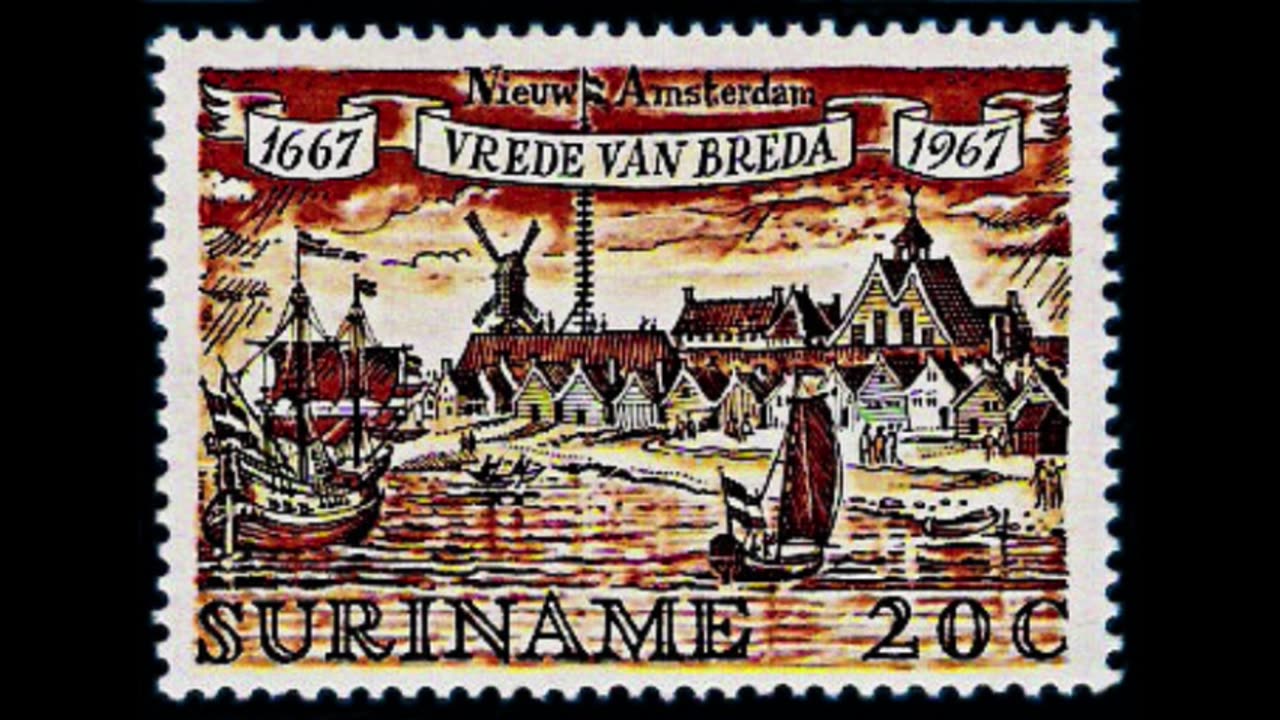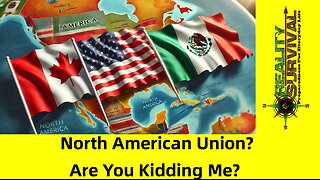Premium Only Content

The Dutch-Anglo Trade Strategy’s Colonial Game: New York for Suriname
During the colonial era, British planters played crucial roles within a vast network of plantation economies spanning various global regions, such as the Americas and the Caribbean. Their pivotal contributions significantly driven the start and advancement of agricultural industries, particularly in areas blessed with favorable climates and fertile land favorable to cultivating cash crops.
In the case of Suriname, British planters, alongside their enslaved workforce, established the initial permanent settlement in 1651 among European settlers, initiating the cultivation of crops like sugar. Enslaved Africans were brought in to work on the plantations, forming the cornerstone of Suriname's plantation-based economy. The land was owned by these planters, who oversaw operations and reaped profits from the labor of enslaved individuals.
As time progressed, the plantation system in Suriname expanded, attracting planters from various European nations, including the Dutch. In 1667, the Dutch navy expected control of Suriname, exchanging it with the British for New Amsterdam (now New York City). Aside from alternating periods of British rule, Suriname remained under Dutch control until gaining independence in 1975.
The Treaty of Breda, signed on July 31, 1667, carried significant consequences for Suriname's historical path. This treaty marked a transfer of Suriname from British to Dutch control. The Dutch influence went beyond immediate gains, shaping Suriname's linguistic, cultural, and economic landscape.
To read more: https://www.timeprinternews.com
-
 LIVE
LIVE
The Jimmy Dore Show
29 minutes agoTrump TROLLS Newsom Over LA Fires! Zuckerberg & Facebook GIVE UP on Fact Checking!
5,040 watching -
 LIVE
LIVE
Dr Disrespect
7 hours ago🔴LIVE - DR DISRESPECT - DELTA FORCE - ATTACK AND EXTRACT
4,175 watching -
 LIVE
LIVE
Melonie Mac
1 hour agoGo Boom Live Ep 33!
234 watching -
 1:00
1:00
Congresswoman Harriet Hageman
4 hours agoCongresswoman Harriet Hageman Rumble Rollout
8819 -
 LIVE
LIVE
Scammer Payback
3 hours agoCalling Scammers Live
661 watching -
 13:08
13:08
RealitySurvival
8 hours agoNorth American Union - Why THIS IS A BAD Idea!
1323 -
 DVR
DVR
Redacted News
3 hours agoWEF is in FULL PANIC MODE over Trump, LA wildfires a failure of liberal government | Redacted News
53.4K117 -
 DVR
DVR
vivafrei
8 hours agoInterview with Enrique Tarrio's Mother - Viva Frei Live
54.8K20 -
 53:07
53:07
Candace Show Podcast
2 hours agoBlake Lively VS Justin Baldoni: The Revenge of #MeToo | Candace Ep 128
45K60 -
 1:59:04
1:59:04
Darkhorse Podcast
5 hours agoThe 259th Evolutionary Lens with Bret Weinstein and Heather Heying
31.7K19